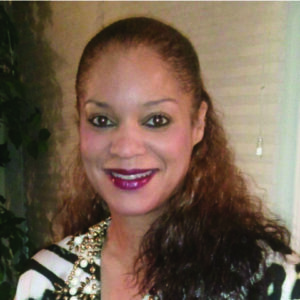
Dr. Frederica Kennedy has 17 years of experience, specializing in pediatrics, with particular emphasis in the areas of autism, developmental disabilities and sensory processing disorders. She has treated all ages of pediatric patients in hospital, outpatient, and home settings. Dr. Kennedy’s experience also includes teaching both undergraduate and graduate-level students in occupational therapy and participating in research.
Autism continues to be a growing concern due to skyrocketing statistics that have reported 1 in 66 children are diagnosed with autism. Autism knows no race, gender, religious or socioeconomic status, and there is no cure. Knowing these facts, what can be done to be proactive, rather than reactive, in the early detection of this neural developmental disorder?
We start by comparing a child’s age and physical growth to his development. Children’s development is evaluated based on what we call developmental milestones – functional skills or age-specific tasks that most typically developing children can do within a specified age range. These milestones are used by pediatricians to monitor a child’s development.
Developmental milestones may be age-specific, but the rate at which a typically developing child reaches that milestone can vary quite a bit, so missing a milestone does not necessarily indicate a serious concern. However, if a child’s developmental age (performance in age specific activities, i.e. play skills, gross and fine motor skills, etc) deeply lags behind his/her chronological age (or, in some cases, adjusted age, such as with very early preemies), it is time to be concerned. Below are the areas of typical development that are monitored:
Gross motor: Ability to use the larger groups of muscles that are generally more broad and energetic, such as walking, kicking, jumping, climbing stairs, keeping balance and changing positions.
Fine motor: Ability to use the smaller muscle groups required for a higher degree of control, manipulation and precision, such as cutting, writing, eating with utensils, etc.
Language: Facial expressions, body language, gestures, speaking, etc.
Cognitive: The thinking skills which encompass problem-solving, reasoning, and remembering.
Social: Interacting appropriately with peers; having good relationships with family and friends, etc.
If you have concerns that your child could have a developmental delay, talk to your child’s doctor or nurse about what you have observed. If you or your doctor think there could be a problem, you can take your child to see a developmental pediatrician, neurologist or other specialist.
Below are some specific questions you should ask your doctor as you begin to seek help for your child:
- What developmental specialist or neurologist would you recommend?
- What is the procedure for referring my child for Early Intervention Services?
- What is the contact information for Early Intervention Services in my state?
If you are not satisfied with the outcome you do have more options. You may choose to make an appointment with another doctor or specialist if you feel your concerns are not being addressed properly or in a timely manner.
When developmental delays are not detected early, children miss out on valuable resources and the help they need, not to mention that the child’s development may lag significantly behind his/her peers. Unnecessary delay may make it more difficult for these children to effectively interact within their environment and learn at a pace that is age appropriate when they begin school.
Early detection and intervention results in a proactive, rather than reactive, approach to autism.
Dr. Frederica Kennedy








